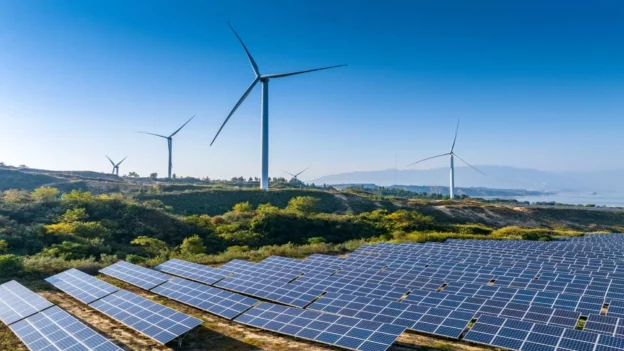A recent report highlighted that seven nations already produce 100% of their electricity using renewable energy, including two countries in Europe . This achievement occurs in a context where 2023 was recorded as the most successful year in the history of wind energy installation, according to Euro News.
Last year, the world saw the addition of 116 GW of new wind capacity, marking a 50% increase compared to 2022, making it the most productive year to date for this sector.
Report: These countries run on renewable energy
The Global Wind Energy Council (GWEC) report shows that China led the installation of new wind farms, followed by the United States, Brazil and Germany. Europe also hit record numbers, adding 3.8 GW of new offshore wind capacity , driven significantly by developments in the Netherlands.
Although the wind push has been prominent in large economies, the report also highlights impressive growth in Africa and the Middle East, where almost 1 GW of wind capacity was installed in 2023, almost triple the previous year. Its authors point out that, to achieve the COP28 objectives of tripling renewable energy by the end of the decade, annual growth of at least 320 GW is needed.
Ben Backwell, Director General of GWEC, acknowledged the remarkable progress of the wind industry, but emphasized the need to further accelerate this growth to meet global climate commitments. According to the International Energy Agency (IEA) and the International Renewable Energy Agency (IRENA), countries such as Albania, Bhutan, Ethiopia, Iceland, Nepal, Paraguay and the Democratic Republic of the Congo already generate their electrical energy exclusively from sources renewable .
The future of renewable energy
Regarding the future of renewable energy, although hydroelectric and wind have been predominant, it is anticipated that solar energy could surpass them as the main source of renewable energy. By 2023, solar accounted for 73% of the growth in renewable energy capacity, with technology improving and costs falling rapidly.
By 2050, solar energy is expected to become the world’s leading energy source , according to a study by the University of Exeter and University College London.
The transition to renewable energy reflects a commitment to environmental sustainability and offers new economic opportunities. As more countries achieve energy independence through renewable sources , a strengthening of energy security and a reduction in energy price volatility are anticipated, which could have profound positive effects on global economies.
Follow us on social networks and don’t miss any of our publications!
Inspenet.com YouTube LinkedIn Facebook Instagram X
Source: worldenergytrade.com
Photo: shutterstock

